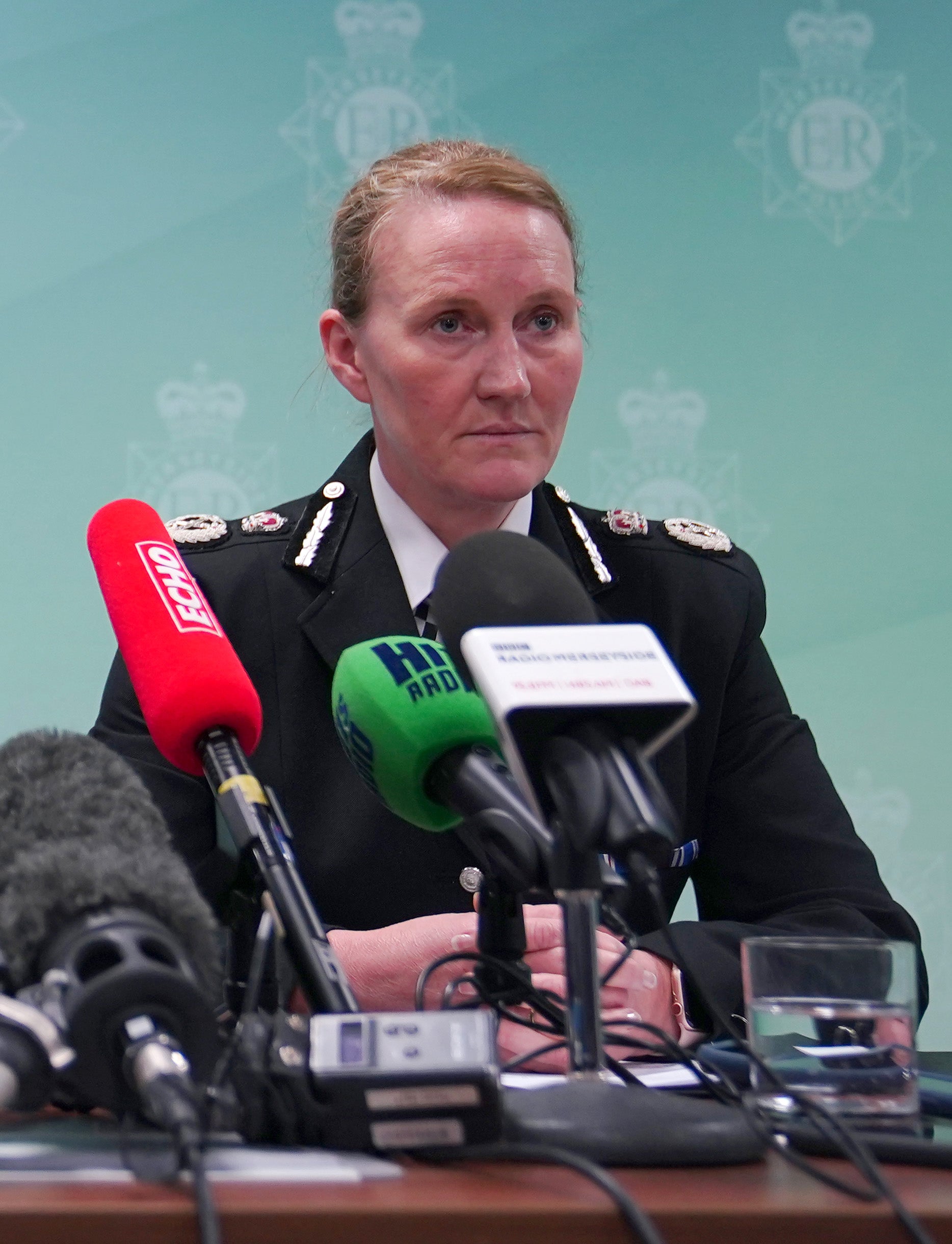Chief Constable defends Merseyside Police over ‘institutional racism’ claim
Serena Kennedy denied claims by Police and Crime Commissioner Emily spurrell that the force is institutionally racist.

Your support helps us to tell the story
From reproductive rights to climate change to Big Tech, The Independent is on the ground when the story is developing. Whether it's investigating the financials of Elon Musk's pro-Trump PAC or producing our latest documentary, 'The A Word', which shines a light on the American women fighting for reproductive rights, we know how important it is to parse out the facts from the messaging.
At such a critical moment in US history, we need reporters on the ground. Your donation allows us to keep sending journalists to speak to both sides of the story.
The Independent is trusted by Americans across the entire political spectrum. And unlike many other quality news outlets, we choose not to lock Americans out of our reporting and analysis with paywalls. We believe quality journalism should be available to everyone, paid for by those who can afford it.
Your support makes all the difference.Merseyside’s Chief Constable has defended her force after claims by the region’s Police and Crime Commissioner (PCC) that it is institutionally racist.
Serena Kennedy said she “categorically” does not believe Merseyside Police is institutionally racist, in a statement issued in response to comments by her boss, Emily Spurrell.
Ms Spurrell was elected to the £86,700-per-year PCC post last year and her job is to hold the Chief Constable to account and oversee the force’s £370 million budget.
In an interview with Policing TV, Ms Spurrell said she agrees that Merseyside Police is institutionally racist.
She said that does not mean individual officers are racist but the way the force operates “has been designed by a certain group of people” which does not take into account how black and ethnic minority people might experience policing, and institutionally does not work for such communities.
Ms Spurrell said: “The sooner we just accept that, we can just move on and put it right.”
But she conceded that, in conversations with Ms Kennedy, the two do not agree.
Ms Spurrell added: “She wants to own a problem, she acknowledges that there is an institutional racist problem, she fears the damage it might do to serving police officers and the importance of getting them on board.”
Institutional racism was the term used by retired judge Sir William Macpherson in his 1999 report into how the Metropolitan Police dealt with the murder of Stephen Lawrence, the black teenager who was stabbed to death in a racist attack in south-east London in 1993.
The Macpherson Report labelled the Met “institutionally racist”, defining the phrase as a collective failure of an organisation to provide an appropriate service to people because of their colour, culture or ethnic origin, manifested in processes, attitudes and behaviour which amount to discrimination through unwitting prejudice, ignorance, thoughtlessness and racial stereotyping.
In the same Policing TV interview, David Lloyd, the PCC for Hertfordshire, said it is “really unhelpful” to talk about police forces being institutionally racist.
And Dorset PCC David Sidwick said: “The fact that the NPCC (National Police Chiefs’ Council) are going to globally say that every police force in the country is institutionally racist, I find quite offensive.”
Both the Merseyside Chief Constable and PCC released statements on Thursday addressing the issue.
Ms Spurrell said: “However we define it, racism and inequality permeate all our public institutions.
“Acknowledging structural racism absolutely doesn’t mean our individual police officers and staff are racist.
“It means recognising that our systems and processes were designed by a certain group of people in a different time when the make-up of society was different. It means recognising some of those structures are outdated and that they don’t work for all our communities now.”
Ms Kennedy’s statement said: “I categorically do not believe that Merseyside Police is institutionally racist.
“We know that policing, like society, is not free of racial discrimination, bias and disproportionality. It still exists in some policies and processes, and we are taking action to change this.
“We collectively want to improve, we want to progress, we want to be better. We are not institutionally racist.”
Subscribe to Independent Premium to bookmark this article
Want to bookmark your favourite articles and stories to read or reference later? Start your Independent Premium subscription today.